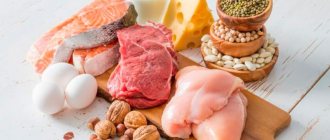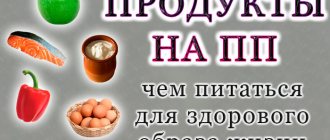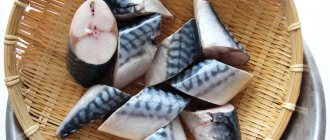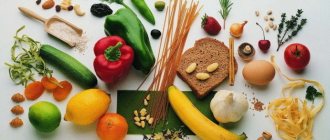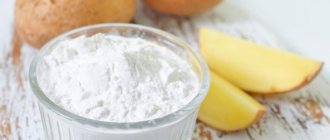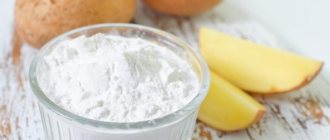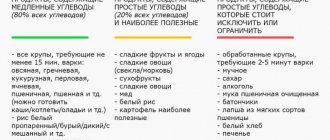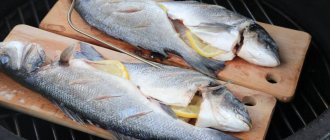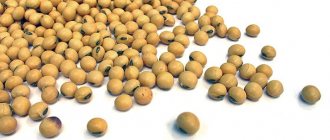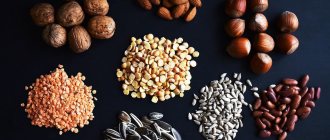Proteins (also called proteins or peptides) are substances that, along with fats and carbohydrates, are the main components of human nutrition. When they enter the body with food, they have a huge impact on the functioning of many internal organs. Their deficiency is fraught with serious health problems. Therefore, you cannot avoid using them for too long.
Modern dietetics has taken advantage of the ability of these high-molecular compounds to be instantly digested and saturate for a long time and began to use protein products for weight loss. They make extra pounds melt away by leaps and bounds and at the same time form a beautiful, sculpted figure, as they activate the growth of muscle mass when playing sports. They deserve to be given close attention.
Proteins for the human body. Useful properties of proteins, meaning, functions
Proteins and products containing protein play an important role for the body and human health, and a balanced and good diet is the key to excellent well-being .
To stick to proper nutrition, you need to know which foods contain protein.
It has long been known that the human body consists of 14.7 percent proteins , since proteins are an important element in the human body. They influence the processes of growth, digestion, reproduction, and are the basis of antibodies, hormones and various enzymes.
Proteins are of plant origin and also of animal origin, and it is the latter that are more important for the body; they are digested faster and better absorbed. Plant proteins are more difficult to digest due to their fiber shell (it is this fiber that interferes with digestive enzymes and delays the entire process).
Protein foods – what are they?
If foods contain little protein, they cannot be called protein. The most protein is found in animal products: meat, fish and cottage cheese. But some plant foods, such as legumes or nuts, also contain a lot of protein. At the same time, although mushrooms contain large quantities of protein, there is no need to get carried away with them - their protein is poorly absorbed by the human body.
Protein is one of the 3 important components used by the body for healthy functioning, the other two being carbohydrates and fats. It is involved in all important life processes and has different effects on different organs. Protein should make up 40% of the daily diet and come from plant and animal foods.
- Cells and muscles consist of protein, which is especially important for children, pregnant women and athletes. It restores damaged cells and is responsible for their regeneration.
- Metabolism – protein affects metabolism and helps various components be absorbed.
- Hormonal background - protein normalizes the hormonal system thanks to the pituitary gland.
- Immunity – protein provides tissues with an individual structure, creates a protective system and resistance to infections.
- Blood – Protein helps supply oxygen, vitamins, minerals, carbohydrates and other chemical elements to organs through the blood.
Daily protein intake - table
The daily protein requirement is different for everyone. Here is a table calculating the protein norm per 1 kg of weight:
- the average norm for an adult is 1–1.5 g (approximately 85 g per day);
- with normal weight, physical activity, physical training - from 1.8 to 3.3 g;
- with normal weight but low physical activity - from 1.2 g to 1.8 g;
- for overweight and obesity - from 1.2 g to 1.5 g;
- during pregnancy - from 1.7 g to 1.8 g.
When choosing products, you should take into account that 1 g of protein gives the body 4 kcal, 1 g of fat - 9 kcal, 1 g of carbohydrates - 4.2 kcal. Protein in the daily diet of an adult should provide from 12 to 25% of calories.
Signs of protein deficiency
- difficulty concentrating;
- susceptibility to infections;
- hair loss;
- sleep disorders;
- splitting of nails;
- dry skin.
A lack of protein is accompanied by hypo- and avitaminosis, iron deficiency anemia, and a lack of zinc in the body. Intestinal and thyroid function disorders occur, hormonal imbalance and muscle atrophy develop.
List of animal protein products
Protein products of animal origin include all types of meat and seafood, as well as dairy products and eggs. They are quickly digested, but have a lot of fat, which is not always good for weight loss. That is why during a protein diet, chicken, turkey and rabbit are allowed, but pork and lamb are prohibited. It is better to choose low-fat milk or with a minimum percentage of fat. Here is a list of animal protein products:
- Sturgeon caviar
- Mutton
- Shrimp, crayfish, crabs
- Cheese
- Salmon, beluga, tuna, sardine
- Beef
- Chicken meat, chickens
- Rabbit, hare
- Pork
- Chicken and quail eggs
- Milk and dairy products
- Duck, goose
- Chicken stomachs
- Beef tongue
- Liver
All these proteins are easily digestible, in addition, they are closer in composition to the proteins contained in the human body. Dairy products contain fast proteins - 9 amino acids, which our body is not capable of producing on its own. And meat, in addition to protein, contains vitamin B12, which is not found in plant foods, but is necessary for the proper functioning of the nervous system. In addition, red meat and egg yolks contain zinc and iron, and dairy products contain calcium and leucine, which are necessary for building muscle tissue. But animal proteins also contain more cholesterol and fat, which are responsible for the development of cardiovascular diseases and obesity. For this very reason, it is better to choose lean varieties of meat.
The most famous protein food is meat, or rather the muscle tissue of animals, fish or poultry, which consists of interconnected fibers. The toughness of the meat depends on the strength of this bond. So the most tender meat includes fish, the toughest meat includes animals. The human body metabolizes types of meat differently. So minced meat from different types of animals will be more useful and valuable than a whole piece. Recommendations for choosing meat:
- Choose lean meats.
- Prefer fish or chicken to red meat.
- Do not fry meat in a frying pan, but cook it by steaming, grilling or oven.
- Do not overuse meat broths - they contain little protein and a lot of fat and harmful substances.
When choosing milk, you should pay attention to its fat content. The higher it is, the less protein will enter your body. Chicken egg white is easily and efficiently absorbed by the body and contains methionine and phenylalanine. But yolks contain many useful lipids, vitamins (except C) and microelements, but they should be limited to 1-2 per day. The average protein content in a chicken egg is almost 12 g for every 100 g. The calorie content of eggs is low, but they are involved in important metabolic processes in the body.
Harm from animal protein
Excessive consumption of such products can lead to metabolic disorders, weakening of the immune system and the human heart. In addition, excessive consumption of red meat provokes the development of cancer and causes cancer. During the treatment of cardiovascular diseases and the digestive system, doctors recommend abandoning animal proteins. In addition, constipation and bad breath may occur.
List of plant-based protein products
Plant protein products are very important when losing weight, because unlike animal protein foods, they do not contain fat and cholesterol, but they are not very well digested. However, both types of protein should not be neglected. Thus, vegetarians do not receive enough essential amino acids contained in meat products. For example, 100 g of beef contains 20% of the required fat and 30% of the required cholesterol, but soy cannot boast of this - it has no cholesterol and only 1% fat. At the same time, soy contains the best composition of amino acids, as well as glutamine and arginine, which increase the body's endurance.
List of plant-based protein products:
- Soybeans
- Green and red beans
- Peanut
- Lentils
- Buckwheat
- Semolina
- Sunflower, flax and pumpkin seeds
- Millet
- Almond
- Peas, chickpeas
- Pistachios
- Hazelnut
- Walnuts and Brazil nuts
- Bread and bakery
- Mushrooms
- Apples and pears
- Berries
- Millet
- Garlic
- Green peas and green vegetables
- Potatoes, onions, zucchini, carrots, Brussels sprouts, tomatoes and cucumbers
- Algae and seaweed
- Oranges and other citrus fruits
- Pineapples
- Fruits with pits – apricots, peaches, cherries, avocados
- Tofu (bean curd)
- Edamame (young green beans)
- Sesame
- Seitan (gluten)
- Spirullina (microalgae)
- Dried apricots and prunes, dates
- Papaya and kiwi
- Soy milk
Nuts are high in vitamins, fiber, minerals and antioxidants, but they lack the essential amino acid methionine. Proteins of plant origin can be absorbed only by 60%, and of animal origin by 80%. Cereals, legumes, lentils, mushrooms and soy are the protein leaders in the plant category. If you consume a variety of protein foods along with fiber, you can not only increase the digestibility of protein, but also avoid the process of rotting food debris in the body. Cook cereals with milk, because vegetable proteins are absorbed much better after being cooked.
Harm of vegetable protein
Any product has its pros and cons, and this depends on the amount of consumption and nutritional balance. For example, plant protein does not contain essential amino acids, vitamin B and sufficient iron. By not consuming animal proteins, the level of saturated lipids and carbohemoglobin in your blood will decrease. You will get tired quickly and urolithiasis may occur. If you consume soy for a long time and in large quantities, hormonal imbalances in women may begin. A diet of legumes will lead to bloating.
Is it possible to eat only proteins?
Protein diets are useful for those who want to lose weight, but you need to know in moderation. Doctors and nutritionists do not recommend eating exclusively proteins, since their excessive consumption does not have a positive effect on the body, but, on the contrary, negatively, leading to problems with the liver and kidneys.
This is especially harmful for children, since their diet should include a variety of foods and a balanced diet. If children are fed only protein foods, they may experience growth retardation.
Egg diet
There are different opinions regarding eggs and blood cholesterol. Some claim that eggs increase cholesterol, while others deny it.
An egg has two components - white and yolk. The protein component of an egg is only ten percent protein itself, and the rest is water. The yolk contains a large percentage of cholesterol, and this is what raises serious doubts about the usefulness of this product. Many nutritionists are inclined to believe that eating eggs reduces the percentage of good cholesterol in the blood and increases the percentage of bad cholesterol, which may not have the best effect on the functioning of the cardiovascular system. But there is an “antidote”: eating eggs together with antioxidants stops the process of increasing bad cholesterol.
Eggs are used as the basis for this diet because they have low calorie content (70 kcal) and are easily absorbed by the body.
Here are the different types of egg diets depending on the duration.
Diet for a week. This diet is the simplest. During the diet, you need to eat only certain foods: eggs, meat, fish, cottage cheese, vegetable salads, fruits. It is recommended to drink water and herbal tea, as well as low-fat kefir and juices. Black tea, coffee, fats, baked goods and sweets should be excluded from the diet.
From the recommended products you can create a fairly varied menu. This is the advantage of this diet
The diet is designed for a month. This diet gives noticeable results. In some cases, it was possible to lose up to 25 kilograms. The main condition of this diet is the consumption of large amounts of clean water. Vegetables consumed during this diet must be boiled in their own juice, without water. It is allowed to add salt and spices to them. Any oils and fats are strictly prohibited on such a diet. If the diet has been broken, then you need to start all over again.
Types of protein
The downside is that it is prohibited for those who suffer from allergic reactions to eggs. During pregnancy and breastfeeding, this diet is also contraindicated. In general, before starting this diet, you need to get medical advice, since the egg diet is not suitable for those who suffer from chronic diseases of the kidneys, blood vessels and heart. Caution should be exercised by people suffering from cholelithiasis, as the yolk increases the secretion of bile, which can lead to an attack.
In the twenty-first century, the culinary industry has reached its apogee
Slow and fast proteins
Slow proteins are proteins with a large amount of calories that cannot be absorbed quickly, only over a long period of time. Also, the body spends more energy on their processing.
Fast proteins are proteins that are absorbed by the body in a short amount of time, mainly animal products.
Fast proteins are useful for those who play sports or lead a very active and active lifestyle with a lot of physical activity.
List of foods with “slow” protein
Products:
- Soy.
- Polka dots.
- Buckwheat.
- Corn.
- Rice.
- Beans.
- Wheat.
- Oats.
- Rye.
- Peanut.
List of foods with “fast” protein
Products:
- Milk (cow's).
- Chicken eggs.
- Cheese products.
- Curds.
- Kefir.
- Beef.
- Chicken meat.
- Lean pork.
- Some types of fish.
Purposes of use
Since proteins help build muscle mass, people who start tracking their protein levels do so for one of two main purposes.
To build muscle mass
A person who systematically engages in physical activity increases the need for certain substances, which relates mainly to proteins. This happens because muscles need to recover after sports - therefore, they need to be provided with a sufficient amount of protein for “construction”.
For weight loss
To lose weight, of course, you need more protein than when gaining weight. But you definitely shouldn’t overuse protein.
Foods that are high in protein. List
You can find out which foods contain a lot of protein from the list:
- Meat products and poultry.
- Various seafood, different types of fish.
- All sorts of different fruits and different vegetables.
- Seeds and also nuts.
- A variety of dairy products.
- Eggs (not just chicken).
Meat products, as well as poultry: lean cow meat, chicken meat such as fillet or breast, turkey (fillet is best), rabbit.
Fish, as well as various seafood: salmon, mackerel, shrimp (various).
Fruits and a variety of vegetables: bananas, beans, avocados, spinach.
Seeds and nuts: a wide variety, for example, walnuts or Brazil nuts, hazelnuts and so on.
Dairy: cottage cheese, milk itself (cow's), and so on.
Cheeses: a wide variety.
Errors and misconceptions
Many people think that anyone can lose weight on a protein diet, but this is absolutely not true. To lose weight, you need a balance of both fats and calories consumed, because you can not only not lose weight, but also gain weight if the combination is incorrect. This is especially true for lovers of sausages - they are fatty, but low in protein.
It is better to accompany a protein-rich meal with fiber in the form of vegetables; it is difficult to gain weight from such a combination. It is worth remembering that the body cannot do without carbohydrates for a long time; this will certainly affect appearance, mental abilities and metabolic disorders.
Vegetable protein. Grocery list
The following products will have the greatest amount of vegetable protein:
- Legumes: lentils, etc.
- Nuts: peanuts, etc.
- Various seeds: pumpkin seeds and sunflower seeds.
- Hummus.
- Dried fruits: dried apricots, prunes.
- Fruits: for example, bananas.
Protein with fiber - products
Some products immediately contain both the required amount of protein and fiber, which is very important for the body. These foods include some fruits and vegetables, as well as nuts (hazelnuts or peanut butter if you can't buy nuts) and various seeds.
Nuts and seeds that contain protein
This table below lists the most popular nuts, as well as some seeds that contain protein.
Cereals and legumes that are high in protein
This table shows the most popular cereals and legumes that contain a lot of protein.
What vegetables contain protein?
Products:
- Brussels sprouts and cauliflower.
- Broccoli.
- Pumpkin.
- Beet.
- Turnip.
- Carrot.
- Celery.
- Bulgarian pepper.
- Radish.
- Swede.
- Tomatoes and tomatoes.
How to eat right?
Health is the state of the body. Often speaking about health, we forget the very meaning of this concept. When we say “I want to be healthy,” none of us think about how it really is? How can we be healthy the right way? After all, there are many options and a large selection of healthy food, water, recreation, etc., but it is different for everyone.
Each person has his own capabilities, abilities, needs, and it’s not to say that this or that lifestyle will suit everyone and everything; to put it simply, a healthy lifestyle is not a panacea! Let's try to figure out what a healthy lifestyle is?
A healthy lifestyle is a structural phenomenon that consists of a large number of components. To achieve the desired result, you need to follow the following rules:
- From childhood, our parents teach and teach us the basics of health and a healthy lifestyle;
- bad and negative habits - you need to give them up. They entail enormous damage not only to health, but also to a person’s appearance, behavior and attitude towards life;
- be able to form a healthy nutritional culture, which involves eating healthy food in moderation;
- be sure to lead an active lifestyle that will correspond to the condition of the body;
- carry out physical activity that will be age appropriate;
- know and observe the rules of hygiene, personal and, of course, public.
The concept of healthy lifestyle can have quite diverse definitions. There are certain aspects that help more accurately formulate the concept of a healthy lifestyle:
- The spiritual aspect is the ability to set guidelines in life, pursue them and strive for them.
- The intellectual aspect makes it possible to search for the necessary information and use it correctly.
- The emotional aspect allows you to more clearly control your emotions and respond adequately to problems.
- The physical aspect helps maintain good health and strengthen the body's defense mechanisms.
Every person strives for self-improvement. There are a large number of recommendations, following which you can achieve a certain level of health.
healthy lifestyle
Basic recommendations
- When you wake up in the morning, don’t forget to wake up your body and do exercises;
- Plan your meals correctly so that you eat as many healthy substances as possible. In winter and spring, when the body especially needs vitamins, add vegetables and fruits to your diet;
- To the best of your body's ability, try to harden yourself. Start your morning by washing your face with cool water, gradually moving on to wiping. This will protect you from illness and colds, and will also strengthen the nervous system;
- Be sure to eat meat and fish - these foods are high in protein. It is the protein that is responsible for the formation of the immune system;
- avoid and protect yourself from negativity and stress;
- give up bad habits, they destroy the immune system;
- sleep at least 7-8 hours a day;
- Do not forget about personal hygiene, wash your hands always when you come from outside and before eating.
Everything written in this article is taken from personal experience and daily activities.
Animal protein. Grocery list
The following foods contain the largest amounts of animal protein:
- A variety of meat products.
- Fish.
- Milk.
- Curd products.
- Various eggs.
Meat products
List:
- Lean beef.
- Chicken fillet.
- Chicken breast.
- Turkey meat (fillet is best).
- Rabbit meat.
- Deer meat.
Seafood
List:
- Salmon.
- Tuna.
- Mackerel.
- Sardines.
- Shrimps.
- Lobsters.
- Squid.
Dairy and fermented milk products
Milk proteins are special natural proteins - proteins of animal origin, which are more easily and quickly absorbed by the human body.
These dairy and fermented milk products include:
- milk,
- curdled milk,
- kefir,
- cheese,
- cottage cheese,
- sour cream.
It is these products that should be present in the diet of every person, regardless of his desire to lose weight or build muscle mass.
Milk proteins increase the performance of the entire body, as well as its endurance.
In addition, such proteins are easily digestible due to the fact that they do not change the acid-forming function.
First day
1First day
During the day, you can eat about 200 g of low-fat cottage cheese, 250 ml of kefir, boiled lean fish or lean meat, and quite a bit of fresh herbs - dill and parsley. If you feel very hungry, you can additionally eat 3 boiled eggs.
2Second day
Today you can add variety: instead of meat, use 350 g of boiled beans, again cottage cheese and kefir 200 g each, boiled shrimp and two soft-boiled eggs. Don't forget to drink water.
3Third day
Baked chicken breast or sea fish, two small cucumbers or tomatoes, baked beans, a cup of porcini mushrooms. You can drink green tea with lemon.
4Fourth day
You can pamper yourself a little: today the menu includes boiled broccoli with red fish, fried mushrooms, unlimited yogurt and one large apple. Chicken fillet should be baked with beans and seasoned with vegetable oil.
5Fifth day
For the whole day, you should divide 250 g of cottage cheese, a small portion of red cabbage salad with sunflower oil without salt, boiled turkey and low-fat kefir. We drink a lot of water.
6Sixth day
The sixth day is exactly the same as the first day.
7Seventh day
Today, a small indulgence is possible - a salad of your favorite vegetables with butter, fried beans and diet bread, unlimited unsweetened yogurt and boiled shrimp with eggs.
8Eighth day
The eighth day is similar to the second, do not forget to drink water.
9Ninth day
Boiled eggs (5 pcs. for the whole day), low-fat cottage cheese (300 g), a sprig of dill, stewed beans with chicken and mushrooms.
10Tenth day
Low-fat milk can be combined with bread, stew beans with any sea fish, 2 eggs and any amount of cottage cheese.
The diet is not considered difficult for those who prefer meat products. Vegetarians may be recommended a similar diet with soy products. After finishing the protein diet, you should gradually return to your usual diet, take vitamin complexes and nourish your body with minerals.
Protein-rich foods for weight loss
What foods contain protein that are recommended to eat when losing weight:
- Dietary meat: it is best to take chicken fillet.
- Fish.
- Some seafood.
- Milk.
- Egg whites.
- Cottage cheese (necessarily low-fat, it is best to take it fresh, from the market, and not in boxes with a long shelf life).
- Cheeses (the fat content of such cheeses should not exceed 25%).
- Soy milk.
- Soy cheeses (including tofu).
Healthy protein recipes
In the modern world, it is very easy to find recipes for protein dishes for weight loss.
Turkey Broccoli Pie
A quick protein pie made from broccoli with turkey (can be replaced with chicken) and cheese would be a great dinner.
We prepare it like this:
- It is necessary to boil the broccoli - about 200-300 g - and grind it in a blender.
- Cut the poultry breast into thin pieces and lightly beat.
- Grate cheese (choose low-fat), 100 g is enough.
- Grease a baking dish with a small amount of oil and lay out the layers in this order: poultry pieces, broccoli (mashed potatoes), cheese. Layers can be continued until the products run out.
- Bake this pie at 200 degrees for 30-40 minutes.
Healthy fish salad
The next recipe will be one of the protein salads for weight loss with lightly salted salmon.
To prepare you will need:
- several lettuce leaves;
- several pieces of tomatoes;
- lightly salted salmon – 30 g;
- leek – 1 pc.;
- olive oil;
- salt and pepper to taste.
Cooking steps:
- Cut the salmon into cubes and halve the tomatoes.
- Tear lettuce leaves into pieces.
- Add finely chopped onion.
- Season with oil and your favorite spices. Ready!
Cream soup with beans
We will complete the selection of recipes with puree soup with green beans and chicken.
You will need:
- chicken fillet – 2 pcs.;
- green beans – about 300 g;
- bell pepper – 1 pc.;
- several medium tomatoes;
- spices to taste.
Cooking steps:
- Boil the breast.
- We take out the bird, add chopped tomatoes and peppers.
- Boil the vegetables for 10 minutes, chop with a blender.
- Add green beans to the resulting mixture.
- Grind the chicken.
- Add spices.
Protein diet for weight loss and health. Principles
The protein diet is a special and very effective type of diet, in which the diet of a losing weight person contains only those foods that contain a really large amount of proteins.
The main advantage of a protein diet is that proteins in the body help carbohydrates to be absorbed faster, thereby maintaining the necessary and stable sugar level in the blood.
At the same time, the body spends more energy for processing , protein is more difficult to digest than the same carbohydrates or fats. That is why this type of diet is considered the most effective for those who are struggling with excess weight.
Benefits of a Protein Diet
The main advantages and benefits of a protein diet are that it muffles the feeling of hunger, which usually always accompanies a person losing weight, and that weight loss is carried out by burning fat, and not by gaining muscle mass.
In addition, this diet is perfect for those who are intensely involved in any kind of sport or simply lead a very active and active lifestyle.
Weight decreases quickly; after finishing the diet, the kilograms do not return, as happens with other diets.
On average, in 2 weeks of such a diet you can lose from 4 to 9 kilograms!
Disadvantages of a protein diet
Despite a fair number of advantages, a protein diet (eating foods that contain protein) also has its disadvantages, of which there are also many.
The biggest disadvantage is that such a diet implies an unbalanced diet, which is not very good for the body. The lack of vitamins can negatively affect sleep and performance (a person will get tired and exhausted faster).
With such a diet there is a very large load on the kidneys.
High consumption of calcium in the body.
A protein diet can negatively affect the functioning and proper functioning of the gastrointestinal tract.
This diet is contraindicated for those who have heart or vascular problems.
List of products and how to create a menu
When creating a menu, it is recommended to choose natural products, preferably lactose-free.
Of the proteins, those proteins that have been subjected to heat treatment are most easily and quickly absorbed.
Grocery list:
- Chicken fillet.
- Veal.
- Rabbit meat.
- Fish with white meat.
- Shrimp, squid.
- Milk.
- Various eggs.
- Curds.
- Cheese.
- Soy cheese.
Sample menu for the week
Monday:
- Kefir, omelet (from 3-4 proteins), drinks – tea.
- The chicken is boiled, you can add spices to it. Apple.
- Fish baked in the oven, 150 g with spices and parsley, dill.
Tuesday:
- A tomato, two hard-boiled eggs, maybe yogurt.
- 100 g of meat, steamed exclusively, salad.
- 150 g of lettuce and cucumber salad.
Wednesday:
- Oatmeal (porridge) with dried fruits or nuts, tea, maybe coffee.
- Chicken breast, boiled, salad.
- Steamed fish, a glass of boiled beans, a glass of yogurt.
Thursday:
- 150 g of natural cottage cheese, tea (preferably green), nuts.
- Chicken broth, chicken breast, vegetables.
- Something meat, definitely baked, salad.
Friday:
- Fresh vegetable salad, yogurt, but only natural and without additives.
- Broccoli soup, boiled chicken breast. Bread.
- Fresh cabbage and pea salad, baked breast (can be topped with cheese).
Saturday:
- Omelet, a little ham, tea.
- 100 g steamed fish.
- Stew of meat and vegetables, yogurt. You can have kefir.
Sunday:
- 150 g of cottage cheese with dried apricots or prunes, green tea.
- Cooked buckwheat, some meat, maybe fish.
- 150 g meat with herbs (baked), kefir.
How to get off a protein diet correctly
In order for the body to experience less stress when leaving the diet, it must be done correctly and gradually.
It is recommended to regularly drink sugar-free drinks and try to eat less sweets and starchy foods.
It is better to have breakfast with porridge (for example, oatmeal) or cottage cheese.
It is recommended to eat more fresh vegetables and fruits.
Contraindications
A protein diet is contraindicated for people suffering from heart or vascular problems, as well as for people who have severe problems with the stomach and digestive process.
This diet is not recommended for those who have problems with the kidneys and liver.
Under no circumstances should anyone who has any type of cancer follow this diet.
It is also not recommended for older people to follow this type of diet, as it increases the risk of blood clots.
Effect on the body
If you limit the consumption of fats and carbohydrates in your diet, protein foods will quickly restore order to your body, which will ultimately result in the loss of extra pounds. The mechanism for losing weight has long been scientifically proven:
- the body is effectively cleansed of toxins, toxins and other harmful substances that prevent many organs from functioning fully;
- strengthening the heart and blood vessels by lowering blood sugar;
- normalization of insulin function, which leads to intensive burning of glucose absorbed by muscles;
- control of water balance in the body, removal of excess fluid, which is often the main cause of high weight;
- maintaining muscle tone, which leads to weight loss, since only fatty tissue is burned, and there is no loss of nutrients;
- improving metabolism, which is necessary when losing weight;
- decreased appetite, dulled feeling of hunger due to long digestion of protein products.
In addition to losing weight, as a bonus, protein products as part of a protein diet will have a positive effect on a variety of organs and systems of the body. Therefore, when you come out of such fasting, you will feel great.
If you want to know more precisely what will happen to your body, the information in this table will certainly make you a fan of protein nutrition.
A distinctive feature of proteins is that when they enter the body, they are not stored as fat on the sides and are not converted into energy like carbohydrates. All of them are used to restore organs and systems, decomposing into amino acids - another substance that is incredibly useful for humans. Therefore, it is so important to know what protein products are for weight loss and what their main sources are.
How and what kind of proteins to use for muscle growth in bodybuilding
Not only those who want to lose weight, but also athletes who want to build muscle mass take special care when consuming protein.
An athlete's diet should consist of 50% protein , preferably of animal origin; experts recommend consuming about 1.5 or 2 grams of protein per kilogram of weight.
For accelerated muscle growth, it is recommended to consume large amounts of protein foods, as well as special protein shakes.
Popular Protein Foods for Muscle Growth
What foods contain protein and which of them are recommended for those who want to gain exactly the desired muscle mass required for themselves.
These products include:
- Beef.
- Tuna.
- Cottage cheese.
- Turkey.
- Chicken.
- Eggs.
- Fish.
Protein shakes (recipes)
Recipes:
- Ingredients: 250 ml of fresh milk, you can add 2 or 3 tbsp. l. honey to taste, ripe soft banana, natural yogurt, any oatmeal. Mix all ingredients thoroughly in a blender.
- Ingredients: 100 g of natural fresh (without additives) cottage cheese, 100 g of natural cherry juice, egg white. All ingredients are thoroughly mixed using a blender.
- Ingredients: 0.5 l of milk, 50 g of honey or any jam with a little sugar to taste, 250 g of fresh natural cottage cheese, 100 g of milk powder, 100 g of thick sour cream, dried fruits. The ingredients are mixed in a blender.
How much protein does the body need?
If you do not take into account athletes and professional bodybuilders, the average amount of pure protein for an adult is from 90 g to 120 g. The minimum amount is at least 40!
The simplest formula for calculating the required amount is 0.5 g per 1 kg of your weight, provided that you do not have any special physical activity. If you regularly engage in sports, then multiply the resulting result by 1.5-2.
The amount also depends on the age of the person - in youth, growth and metabolic processes are much faster than in old age.
In the cold season, during periods of intense mental work, foods containing large amounts of protein (table below) must be included in the diet.
However, not only the quantity of protein plays a role - its quality is no less important.
Popular low protein foods. List
What foods contain protein:
- various milks,
- some types of meat,
- various cereals,
- fruits,
- vegetables,
- seeds,
- nuts,
- fish.
Eating protein and foods that contain protein helps those who are overweight to lose weight, but you can’t eat only protein - this can negatively affect your health, and large amounts of protein should be consumed when the main goal is to gain muscle mass.
Useful video
To understand in practice how much protein you need and what it generally looks like in reality, watch the video below - everything is explained very clearly and clearly.
Irina Polyanitsa My name is Irina, I am the owner and admin of the site, as well as the author of most of the recipes and articles. I love to cook simple and healthy delicacies. Certified gym instructor, personal trainer. She completed a course on nutrition and health at Stanford University, Stanford Introduction to Food and Health, as well as a course at Ludwig Maximilian University of Munich (LMU) Nutrition and Lifestyle in Pregnancy (about nutrition and lifestyle during pregnancy).
How to calculate the daily allowance
First you need to calculate your metabolism.
For women:
- for women aged 18 to 30: [0.06 * weight (kg) + 2.04] × 240;
- for women aged 31 to 60: [0.03 * weight (kg) + 3.54] × 240;
- for women over 60: [0.03 * weight (kg) + 2.75] × 240.
For men:
- for men aged 18 to 30 years: [0.06 * weight (kg) + 2.90] × 240;
- for men over 60 years of age: [ 0.05 * weight (kg) + 2.46] × 240.
We calculate daily caloric intake . Scientists have derived certain coefficients:
- Multiply by 1.1, with fairly low physical activity.
- We multiply by 1.3, with moderate activity, which includes sedentary work and several hours of sports activities per week.
- We multiply by 1.5, with high activity, including systematic exercise in the gym.
To get the daily norm, we multiply the metabolic value from the first point by the coefficient corresponding to the activity.
- Nutritionists have calculated that 1 g of carbohydrates = 4 kcal, 1 g of protein = 4 kcal, and 1 g of fat = 9 kcal.
For a person, for example, with a daily caloric intake of 1800 kcal, the number obtained as the daily energy volume must be divided into 6 parts (1 part protein + 1 part fat + 4 parts carbohydrates). Part of fats and proteins is 300 kcal, therefore, with carbohydrates - 4 parts of 300 kcal each, that is, 1200 kcal.
- required amount of protein per day - 300 kcal: 4 kcal = 75 g;
- required amount of fat per day - 300 kcal: 9 kcal = 33 g;
- the required amount of carbohydrates per day is 1200 kcal: 4 kcal = 300 g.
As you can see, it is not so difficult to calculate and create a complete diet for yourself, saturated with all the necessary substances.
What promotes protein absorption
When the pancreas functions properly, proteins are absorbed efficiently.
Our body does not require protein in its pure form. Proteins are broken down into the primary amino acids that make up the specific protein compound.
The following tips will help improve the digestion process and absorption of proteins:
- Choose complete proteins - those that contain the entire set of essential amino acids or wisely combine products.
- The less fat in a food product, the better the protein in the dish is absorbed.
- Heat treatment makes it easier for the body to absorb protein, although some amino acids are destroyed at elevated temperatures.
Normal gastric acidity and a healthy pancreas contribute to the high-quality absorption of protein foods.
Proteins: classification
What do we know about proteins? The fact that they come in animal and plant origin. Meat and fish contain more proteins than plants and are more digestible. Therefore, doctors recommend eating animal foods.
In addition, there is a division of proteins into “slow” and “fast” proteins. The speed of their absorption and assimilation is different. “Slow” protein is slowly absorbed by the body - from 6 to 8 hours - and contains few calories. Cottage cheese is one of these proteins. “Fast” protein is absorbed much faster, so such products are recommended for people in need of rehabilitation and rapid recovery.
Taking fast proteins for weight loss
If your goal is to lose excess subcutaneous fat, then after training it is recommended not to eat anything for several hours so that the fat-burning processes that were launched during the training will work for some more time. Eating carbohydrate foods will stop all fat burning processes, which is not what we need. But after training when losing weight, you can take fast proteins and BCAA amino acid complexes in order to minimize muscle loss. In the absence of nutrition after training, not only fats, but also muscles are burned, and fast proteins and branched chain amino acids will help preserve muscle volume, but will not stop the fat burning process.
As for dosages, during cutting, experts advise taking fast proteins after training in 2 times less quantity than during mass gain. It is also a proven fact that BCAA, when added to a protein shake, increases the effectiveness of the drink by 40%, so we advise you to add these amino acids to your protein shake. By the way, on our forum there is.
Today we looked at the topic of taking fast proteins after a workout. If you want to know how to eat before starting physical activity and during exercise, we recommend that you watch the video below.
Nutrition before, during and after training
Every modern girl who takes care of herself, engages in various activities, strives to be healthy, fit and “in shape”, simply must also be interested in nutrition issues. Activities and nutrition (rational, thoughtful) are two sides of the “same coin”, because true beauty, youth and fitness are impossible without inner health! Protein is the most valuable substance for all of us, an irreplaceable building material.
Today we will talk in detail about fast and slow proteins, their benefits and effects on our body.
Briefly about why we need proteins.
Protein is the basis of the cells of all organisms on our planet; it is found in all muscles, organs, tissues, including our skin, nails and hair. Protein is the main participant in the most important processes in the body. Proteins are involved:
- in the creation of hemoglobin;
- in the renewal of the dermis;
- in the body’s synthesis of a variety of enzymes;
- in transporting vitamins, lipids, mineral salts and other nutrients throughout the body;
- in the proper absorption of fats, and that’s not all!
Proteins are an obvious benefit for all of us, but sometimes they can cause serious harm. When consumed incorrectly (in excessive amounts, from incorrectly selected products, at the wrong time), proteins can contribute to the development of allergies and various ailments, including cardiovascular diseases.
These dangers mainly threaten those who consume proteins from sausages, fried meats, smoked meats, and modified foods.
